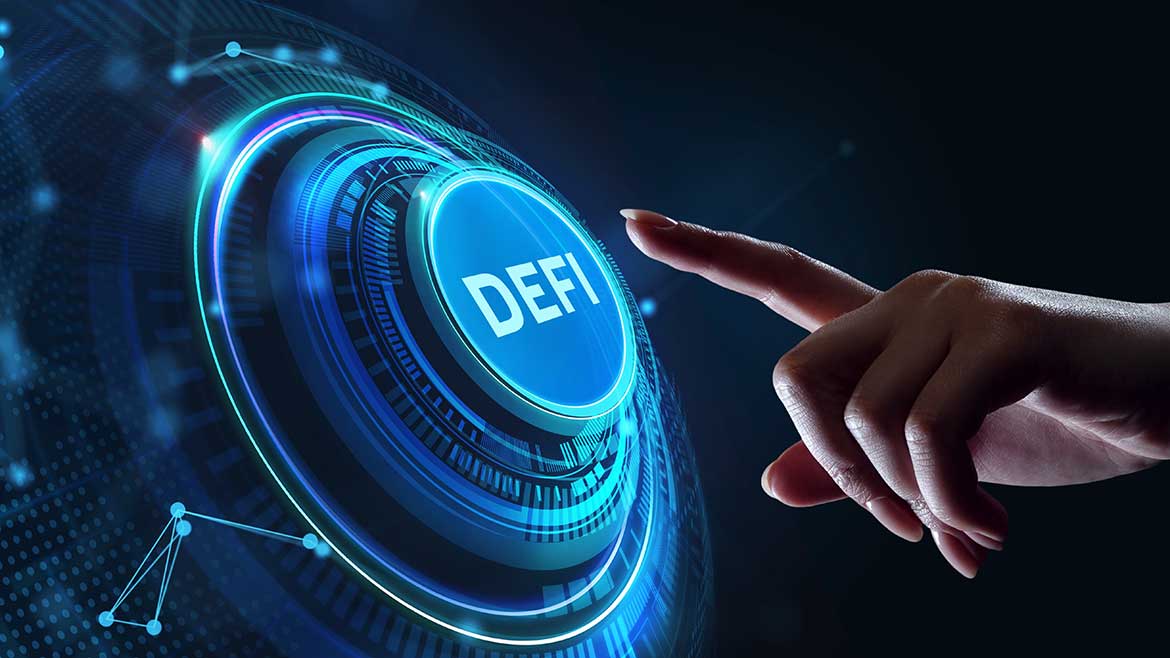Table of Contents
The financial world is undergoing a profound transformation driven by decentralized finance, or DeFi. DeFi refers to a broad category of financial applications built on blockchain technology, designed to disrupt traditional financial intermediaries like banks and brokers. This revolutionary shift is characterized by open-source protocols, decentralized applications (dApps), and smart contracts that operate without centralized control, offering a more inclusive, transparent, and efficient financial system.
The Rise of DeFi
DeFi’s rise can be attributed to the maturation of blockchain technology, particularly the Ethereum blockchain, which facilitates the development of smart contracts. These self-executing contracts with the terms of the agreement directly written into code enable trustless transactions and automated enforcement of contract conditions. The advent of smart contracts has democratized financial services, allowing anyone with an internet connection to access lending, borrowing, trading, and insurance services without relying on traditional banks.
Core Components of DeFi:
- Decentralized Exchanges(DEXs) : Unlike centralized exchanges that require users to deposit funds, DEXs allow direct peer-to-peer transactions. This reduces the risk of hacks and thefts associated with central custody of assets. Popular DEXs like Uniswap and Sushiswap have gained massive traction by enabling users to trade cryptocurrencies without intermediaries.
- Lending and Borrowing Protocols : Platforms like Aave and Compound enable users to lend their assets to others in exchange for interest. Borrowers can obtain loans by collateralizing their cryptocurrency holdings. This system operates through smart contracts, ensuring transparency and reducing the need for credit checks or traditional underwriting processes.
- Stablecoins : These are cryptocurrencies pegged to the value of traditional currencies like the US dollar. Examples include Tether (USDT) and USD Coin (USDC). Stablecoins provide stability in the volatile crypto market, making them ideal for everyday transactions and as collateral in DeFi protocols.
- Yield Farming and Liquidity Mining : These are strategies used by DeFi platforms to incentivize users to provide liquidity. Users earn rewards, often in the form of additional tokens, for staking their assets in various pools. This has created new opportunities for passive income and has driven significant growth in the DeFi sector.
Advantages of DeFi
- Accessibility : DeFi platforms are accessible to anyone with an internet connection, eliminating barriers faced by the unbanked and underbanked populations. This democratization of finance can foster economic inclusion on a global scale.
- Transparency: The open-source nature of blockchain technology ensures that all transactions and protocols are transparent and auditable. This reduces the risk of fraud and increases trust among users.
- Cost-Efficiency : By eliminating intermediaries, DeFi reduces the costs associated with traditional financial services. Smart contracts automate processes, further driving down costs and increasing efficiency.
- Innovation : DeFi is a hotbed of innovation, with developers continuously creating new financial instruments and services. This rapid pace of innovation is driving the evolution of the financial system.
Challenges and Risks
While DeFi presents numerous advantages, it is not without challenges and risks:
- Security Vulnerabilities : Smart contracts are susceptible to bugs and exploits. High-profile hacks, such as the DAO hack in 2016, have highlighted the importance of robust security measures and thorough code audits.
- Regulatory Uncertainty: DeFi operates in a legal gray area in many jurisdictions. Regulatory clarity is needed to ensure consumer protection without stifling innovation.
- Market Volatility : The crypto market’s inherent volatility can impact the stability of DeFi platforms, especially those heavily reliant on collateralized assets. This can lead to issues like liquidation cascades during market downturns.
- Scalability : As DeFi grows, scalability becomes a pressing issue. Current blockchain infrastructure, particularly Ethereum, faces challenges in handling the increasing volume of transactions efficiently.
The Future of DeFi
Despite these challenges, the future of DeFi looks promising. Innovations like Ethereum 2.0 aim to address scalability issues, while layer-2 solutions and alternative blockchains like Solana and Polkadot offer additional pathways for growth. Moreover, the integration of DeFi with traditional finance (TradFi) is on the horizon, with banks and financial institutions exploring blockchain technology to enhance their services.
The potential for DeFi to revolutionize finance is immense. By creating a more inclusive, transparent, and efficient financial system, DeFi has the power to democratize access to financial services, foster innovation, and drive economic growth. As the technology matures and regulatory frameworks evolve, DeFi could become a cornerstone of the global financial landscape, unlocking opportunities for millions around the world.
In conclusion, DeFi represents a seismic shift in the way we perceive and interact with financial systems. Its ability to unravel traditional finance with decentralized platforms is not just a passing trend but a fundamental transformation that holds the promise of a more equitable and efficient financial future. Whether you are an investor, developer, or simply a curious observer, the DeFi revolution is one to watch closely as it continues to shape the future of finance.


